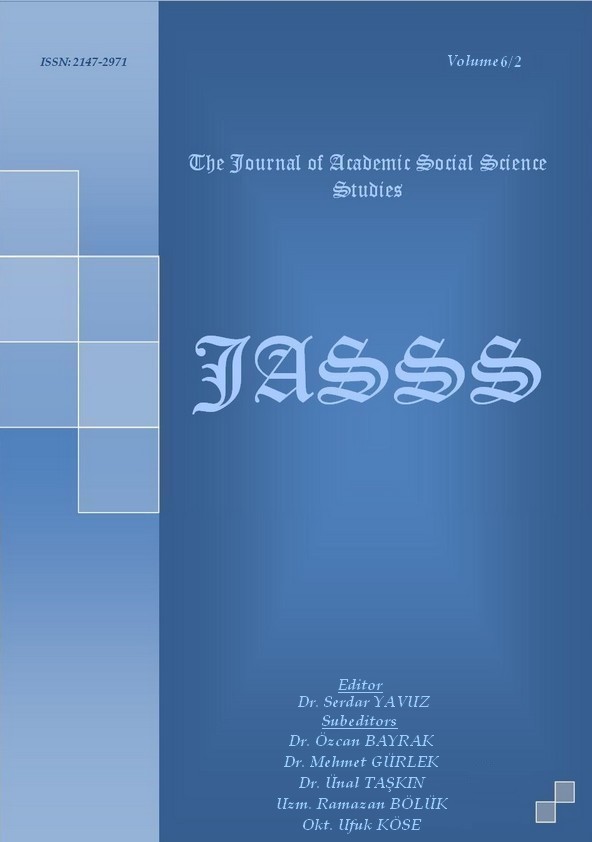Author :
Abstract
Her şeyin hızla değiştiği günümüzde örgütler, çevrelerinde meydana gelen bu değişime ayak uydurmak zorunluluğu duymaktadır. Zira ayakta kalabilmek ve başarılı olabilmek için değişime uyum sağlamak ve onu iyi yönetmek gerekir. Öncelikle örgüt içinde bulunduğu şartlara, ihtiyaçlarına ve değişimin acil olup olmamasına göre (planlı-plansız, makro-mikro, proaktif-reaktif, aktif-pasif, anî-zamana yayılmış, evrimci-devrimci) değişim türüne karar vermelidir. Diğer yandan değişimin başarılı bir biçimde yönetilebilmesi için örgütsel değişimin boyutları (teknoloji, örgütsel yapı, örgüt kültürü, insan kaynağı, süreç ve yöntem, çalışma koşulları) planlama aşamasında örgütsel verilere göre tespit edilmelidir. Örgütleri değişime zorlayan pek çok sebep bulunmakla birilikte, temel sebepler dışsal ve içsel olmak üzere iki ana başlık altında toplanabilir: Dışsal sebepler; teknolojik, siyasal, ekonomik, toplumsal ve doğal koşullar ile küreselleşmedir. İçsel sebepler ise; büyüme, küçülme, kurum birleşmeleri, tepe yönetimin değişmesi, örgütsel yetersizlikler ve çalışanların değişim taleplerinden oluşur. Her değişim az ya da çok bir dirençle karşılaşır. Değişime direnme; kişisel, sosyal, örgütsel ve işle ilgili nedenler başlıkları altında toplanabilir. Direnmeyi önlemek için kullanılabilecek yöntemler ise şöyle sıralanabilir: İletişim ve eğitim, katılım ve destekleme, pazarlık ve taviz verme, tehdit ve baskı, manipülasyon ve kooptasyon, değişimi planlama ve deneme amaçlı uygulama, ekonomik teşvik tedbirleri ile tahmin yöntemi. Değişim örgütlerde, yabancılaşma, çatışma, stres, direnme ve kriz gibi sorunlara yol açabilir. Örgütsel değişim ihtiyaçlara ve kaynaklara göre belirlenmez ve iyi planlanmaz ise başarılı bir biçimde yönetilemez. Ayrıca değişime karşı oluşacak direnmenin ve değişim sürecinde oluşacak diğer sorunların giderilmesi gerekir. Aksi takdirde örgütsel değişim başarısızlıkla sonuçlanır. Değişimi yönetemeyen örgütler yok olmaya mahkûmdur.
Keywords
Abstract
Everything is changing rapidly today, organizations, feels obliged to keep pace with these changes occurring around them. Because, in order to survive and be successful, It is required to adapt to change and manage it well. First of all, the conditions in which the organization's needs, and change depending on whether an emergency (planned-unplanned, macro-micro, proactive-reactive, active-passive, sudden-over time, evolutionary-revolutionary) must decide on the type of change. On the other hand in order to manage change successfully dimensions of organizational change (technology, organizational structure, organizational culture, human resources, process and methods, working conditions) should be determined in accordance with organizational data in the planning stage. There are many reasons forcing organizations to change, but the main reasons can be classified under two main headings, including external and internal: external causes, technological, political, economic, social and natural conditions and globalization. Internal reasons are as follows: growth, downsizing, merger of the institutions, changes in top management, organizational deficiencies and demands of the employees change. Each change, encounters with a resistance more or less. Resistance to change can be grouped; personal, social, organizational and work-related reasons under the headings. Methods that can be used to prevent resist listed as follows: Communication and education, participation and support, negotiation and compromise-making, threat and oppression, manipulation and kooptasyon, change planning and practice implementation, estimation method with economic stimulus measures. Change, can lead to problems such as alienation, conflict, stress, resistance and crisis in organizations. Organizational change, If can not be determined based on the needs and resources and best be planned, managed a successful manner. In addition, must be removed other problems will occur in the process of change and resist against change will occur. Organizations that are not successful in change managing, doomed to disappear. Otherwise, the organizational change fails.
